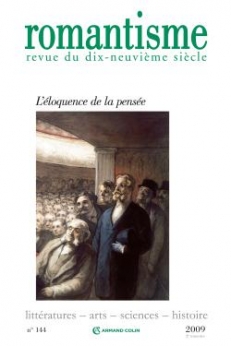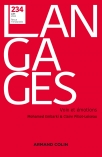
Romantisme n° 144 (2/2009)
Pour acheter ce numéro, contactez-nous
Recevez les numéros de l'année en cours et accédez à l'intégralité des articles en ligne.
Professant la haine de la théorie, Stendhal n’a pourtant cessé de s’interroger sur des questions théoriques, dans ses écrits esthétiques, ses essais, ses traités inachevés sur le comique, ses entrées de journal, ainsi que les annotations qu’il porte sur ses lectures théoriques. Ces textes révèlent que Stendhal entretient avec la théorie un rapport ambigu. D’une part, dans sa façon de lire la théorie, Stendhal procède par dénégation, détournant les idées qu’il se réapproprie après les avoir rejetées. D’autre part, ces textes proposent les formes obliques d’une écriture romantique de la pensée. S’y élabore ainsi une formulation anti-théorique du savoir, proche de l’idéal de « l’esprit ». Le « cas » stendhalien révèle que la pensée romantique naît de la fusion des facultés, dans l’intime continuité qui relie raison et imagination, réalité et fiction.
Despite his repeated rebutal of theory, Stendhal kept returning to theoretical reflection, in his writings on aesthetics, his essays, his unfinishied treaties on the comic, his diaries and the notes he wrote on the books he was reading. These texts bear testimony to his ambiguous relationship to theory. On the one hand, these texts reveal that Stendhal read and used theory in an oblique way. On the other hand, the writing of these texts gives way to an anti-theoretical form of knowledge, close to the ideal of “esprit”. Beyond the Stendhal case, the romantic thought arises from a fusion of various faculties, in the intimate junction of reason and imagination, reality and fiction.

